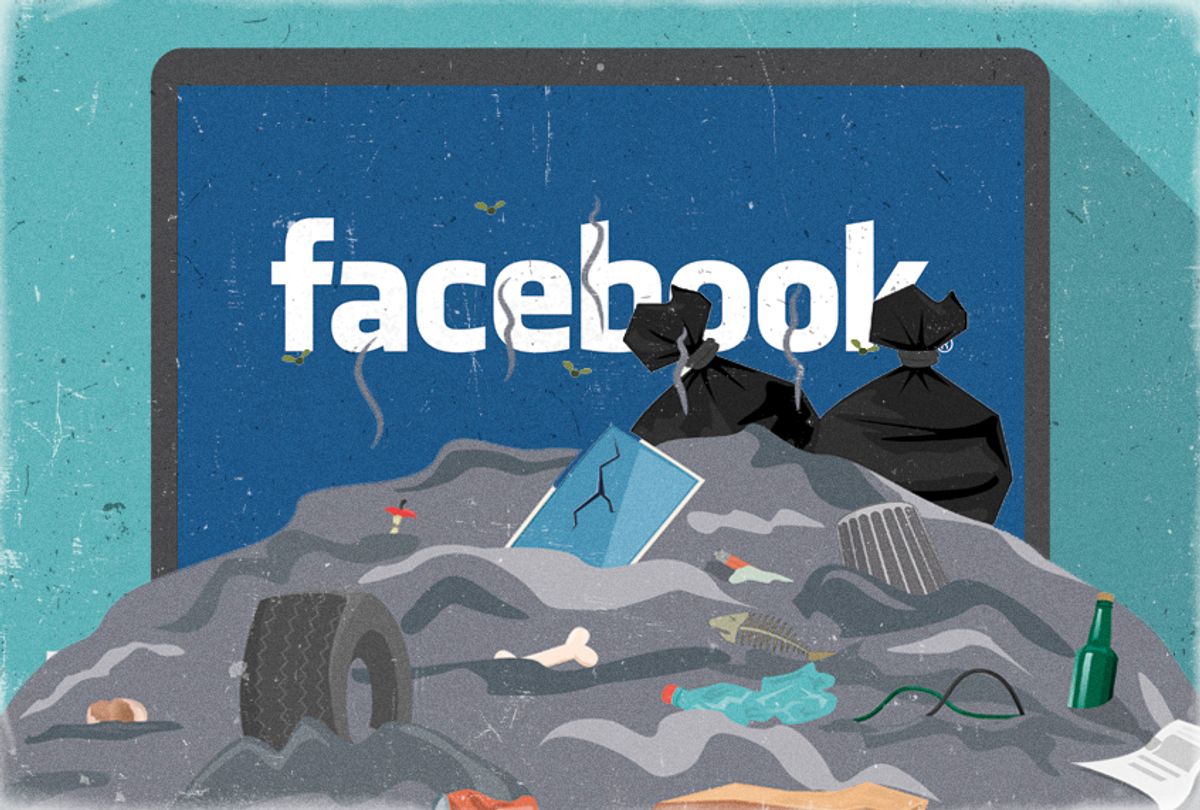Recent revelations that the Trump campaign paid Cambridge Analytica to target potential voters with tailor-made messages have prompted concerns about privacy and data. It is certainly true that the harvesting of data has been used to develop profiling tools, which enable seemingly innocuous algorithms to inform people’s worldviews, as the information consumed is linked to personality traits.
It is easy to assume that companies like Cambridge Analytica – and secret forces like Russian spies, who are intent on spreading disinformation and manipulating people – are to blame for divisions in the societies in which they operate.
But Cambridge Analytica and the Russians didn’t create racism or misogyny. The racism, misogyny and xenophobia that made Trump’s election possible existed long before any interference or data-harvesting of the 2016 race. Trump ran a racist campaign for the presidency supported by white supremacists, and he has a long history of racist and misogynistic behavior. Cambridge Analytica and Russian forces simply took advantage of the deeper issues, which enable this kind of interference and manipulation.
Perhaps no country knows this better than South Africa.
Using less sophisticated methods, Bell Pottinger – a London based PR company with a long history of servicing dubious clients – was hired in 2016 by the Guptas, an Indian immigrant family, to pave the way for a multibillion-dollar corporate empire through South Africa. Bell Pottinger was contracted to help rescue the reputation of the well-connected family, who were facing immense pressure over their influence on the South African government.
Their campaign entailed using real people, Twitter bots and websites in an effort to portray the family as victims of some kind of smear campaign in an attempt to hide the family’s looting of the state. Individual journalists who were reporting on their corrupt deals were also targeted directly with the messaging.
Despite the crude tactics deployed by Bell Pottinger, their campaign clearly contained elements of truth, which made some people much more susceptible to their messages. The company was eventually exposed, despite initially feigning ignorance and then claiming victimhood before finally admitting to wrongdoing. Bell Pottinger went on to receive the harshest sanction from the UK’s Public Relations and Communications Association (PRCA), a national industry association from which it was expelled.
Some, like the Democratic Alliance (DA) — the country’s official opposition party — described the campaign as "stirring," “sowing” and "creating" racial tensions. But it didn’t. What Bell Pottinger’s campaign did was simply exploit already existing racial tensions based on legitimate concerns about racial injustice.
Over 30 million of South Africa’s 55 million citizens lived in poverty in 2015, but poverty among white households has remained largely unchanged around 1 percent; and black South Africans still earn significantly less than their white counterparts – these are just a few of the obvious markers of the pervasive racial inequality that exists in the country. Likewise in the U.S., both economically and socially, the black population is trailing behind their white counterparts, with black Americans more than twice as likely to be poor when compared to white Americans.
What this incident shows is that holding those responsible who spread disinformation and manipulate people is important and possible. But the nefarious agendas of those involved are also enabled by very real structural injustices. So honest discussions about those realities and efforts to confront and change them is also essential and is a lesson the U.S. needs to learn. Eliminating groups like Cambridge Analytica or preventing the manipulation of data or use of bots to spread disinformation won’t end racism, misogyny and inequality; our societies must work together to target the root causes and end it ourselves.



Shares